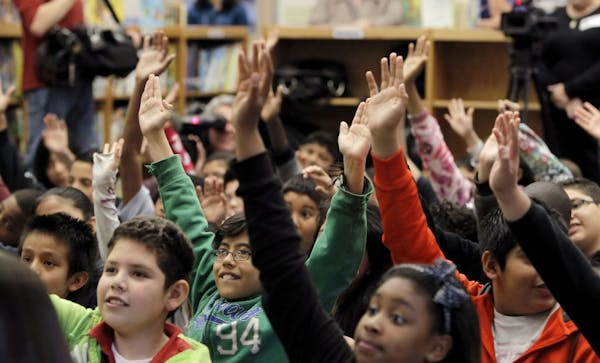Kafkaesque describes how the life of professor Deandre Poole of Florida Atlantic University has morphed. His career may be ruined.
On March 4, Poole used a classroom activity in his intercultural communications class that involved having students write "Jesus" on a piece of paper and then asking them to "step on it." If students hesitated or refused, the teacher had an opportunity to discuss symbols and their meanings. Most of the students refused to step on the paper.
Poole had conducted the exercise before, generating thoughtful discussions and no complaints. The exercise was recommended in the instructor's guide to a textbook FAU had approved.
One student, Ryan Rotela, a Mormon, objected in class to the exercise, saying it was offensive. That prompted Poole to let class out an hour early. He said Rotela approached him after class, punched a fist into an open hand and shouted: "I want to tell you, I want to hit you. Don't you ever do that again. Do you hear me?"
Rotela was suspended. He told reporters he was punished for refusing to "stomp on Jesus," not mentioning the confrontation with his professor. When news of the suspension went viral in the right-wing blogosphere and attracted the attention of powerful politicians, including Gov. Rick Scott, FAU reinstated Rotelo.
Poole has been placed on administrative leave because officials say they can't guarantee his personal safety. He's received hate mail and countless death threats. Officials condemned the exercise and promised it will not be repeated.
The governor wrote a letter to university system Chancellor Frank Brogan asking him to investigate the "Jesus" matter: "The professor's lesson was offensive, and even intolerant, to Christians and those of all faiths who deserve to be respected as Americans entitled to religious freedom."
While Rotelo declares victory on his Facebook page, the professor's career is in limbo. The irony is that Poole describes himself as "very religious" and says he's attended church all of his life. He's taught Sunday school.
I am struck by similarities between Poole's "Jesus" exercise and what one of my professors did when I was an undergraduate in the 1960s. During the second meeting of my religion class, the professor, an ordained Protestant minister, walked into the classroom, raised a Bible above his head and flung it to the floor.
My classmates and I, sophomores, were spellbound, staring from the splayed Bible to the professor's face. Seemingly oblivious to our anxiety, the professor finished calling the roll. Then he began a lecture on the authorship of the book of Genesis. After about 10 minutes, a brave soul raised her hand and asked the professor why he had "done that to the good book."
The professor smiled. We instinctively knew that the Bible stunt carried profound meaning and that we were in the care of an enlightened teacher.
His initial response: The Bible, the physical thing, is printed paper. More abstractly, it's the anthologies of Christianity's and Judaism's sacred texts. It is not the anthology of other religions. Until then, I had assumed that the Bible, the Old Testament and the New Testament, was the sacred text of all humankind.
During the rest of the semester, I grasped the meaning of a liberal education: the rough-and-tumble of ideas, the melding of disparate thoughts and emotions. We learned to respect differences. We wrote essays on the meanings of religious, cultural, literary and social symbols. We had fun because our professor, who used due levity, enabled us to place faith — belief unaided by reason — in proper perspective.
Even more, he demonstrated the efficacy of academic freedom. The university, he argued, is the last refuge of intellectual engagement, an American treasure that must be protected at all costs and for all time.
And so here we are in 2013.
I wouldn't advise a teacher to do what Poole did or what my professor did so long ago. I wouldn't advise it because in today's America, these exercises most likely would result in professional suicide.
The public university no longer is the refuge of academic freedom and rough-and-tumble intellectual engagement. It is a place where professors had better tread lightly in the arena of ideas.
------------
Distributed by Tribune Media Services.
Protect kids online

Here's how I'd broadly frame the environment that led to my firing as a teacher
Get rid of Minnesota's precinct caucuses, go to primary elections up and down the ballot


